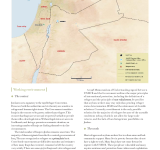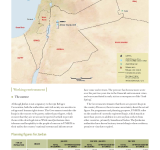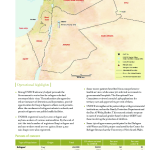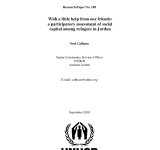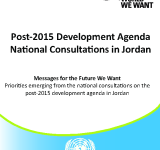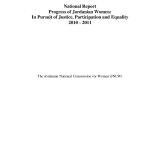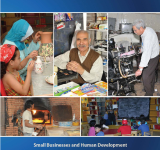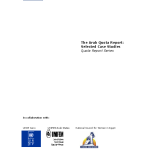والمشاركة
This 4 page fact sheet provides information about Iraqis in Jordan including UNHCR's reponse to them in 2012.
This report provides an overview of UNHCR operations profile in Jordan in 2011. It includes an summary of the situation of refugees and asylum seekers in Jordan;; their figures and UNHCR's reponse in terms of strategies and projects.
This report examines the notion of social capital. The assessment has challenged some of the assumptions about the refugees served in Jordan;; as well as the understanding of the host community. With the strong support of senior management and the informed and enthusiastic engagement of the multi-functional team;; UNHCR Jordan is now identifying new ways to support refugees in strengthening their social capital.
Jordan is one of the 88+ countries which carried out national consultations worldwide. 10 countries from the Arab region were selected to run the post-2015 national consultations: Jordan;; Djibouti;; Egypt;; Morocco;; Sudan;; Algeria;; Yemen;; Iraq;; Saudi Arabia;; and Lebanon. The Jordanian national consultations have been a lead contributor to the first preliminary report of the UN Development Group (UNDG) issued in March 2013 and entitled “The Global Conversation Begins – Emerging Views For a New Development Agenda”;; and also to the UNDG Global report “A million voices: The World We Want”;; launched by the UN Secretary-General and UNDG Chair on 9 September 2013. The Global Report constitutes a milestone in the dialogues to shape the post-2015 development agenda. Its findings have contributed to the UN Secretary-General’s report to the 68th session of the General Assembly in September 2013.
This national report is designed to trace the progress of women in various fields;; monitoring achievements;; and highlighting gaps and failures;; as well as analyzing indicators;; recommending measures;; and measuring levels of achievements in the implementation of plans and strategies. The main themes were selected according to national priorities dictated by each stage: Legal Protection for Women's Right to Access Justice;; Participation;; the Economic Empowerment of Jordanian Women;; Equality;; Citizenship and Decision-Making in Public Life. The conclusions of this report confirm that a much smaller effort was exerted at the level of providing information;; data and the provision of services in the area of providing justice and facilitating ways of achieving it. The lack of knowledge about available services among women;; whether provided by civil society organizations or government institutions;; affects women's ability to access justice negatively. Regarding the economic participation the Policies and plans that targeted empowering women economically show that the result of these policies was weak and limited. Difficulty of women’s access to job opportunities in the private sector and inequitable pay between the sexes;; lack of supporting services to working women;; including childcare Facilities;; poor matching between education outputs and skills required in the labor market and the traditional social standards that contribute to directing females towards certain professions. The report proposed general recommendations and directions that include quick solutions to deal with the main highlighted challenges.
This report explores the role of Small and Medium-Enterprises (SME);; as an agent for sustainable human development in Jordan. It analyzes SMEs and their contribution to human development using fours key central pillars of human development;; namely: economic growth that is equitable and pro-poor;; social progress;; participation and empowerment through micro finance;; and environmental sustainability. The report analyses the link between SMEs and empowerment or lack thereof;; with a specific focus on the two issues of employment;; as a tool for empowerment;; and the capacity of SMEs to enhance the position of women within the workforce and home. The report findings were based on extensive research;; a survey of 1;;500 firms and focus groups discussions conducted across the governorates of Jordan. The report proposed general recommendations in terms of institutional coordination;; exports;; cluster groups;; quality standard;; government monitoring;; tax law;; local development;; youth empowerment and the increase of minimum wage.
This report was compiled from the findings and case studies presented at a workshop held on 5-6 December 2004;; in Cairo Egypt. This report contains an overview on global trends and regional analyses;; implementing legislated quotas for women;; quota adopted by political parties;; methods on enhance women’s participation;; and the role of the international community and international instruments. The international IDEA had convened a series of regional workshops to gather qualitative data. The report also has 6 case studies about women’s participation and quota include comparative experiences with quotas;; address the culture challenges to women’s representation in the Arab world;; and point the opportunities that could be seized in order to meet those challenges.
